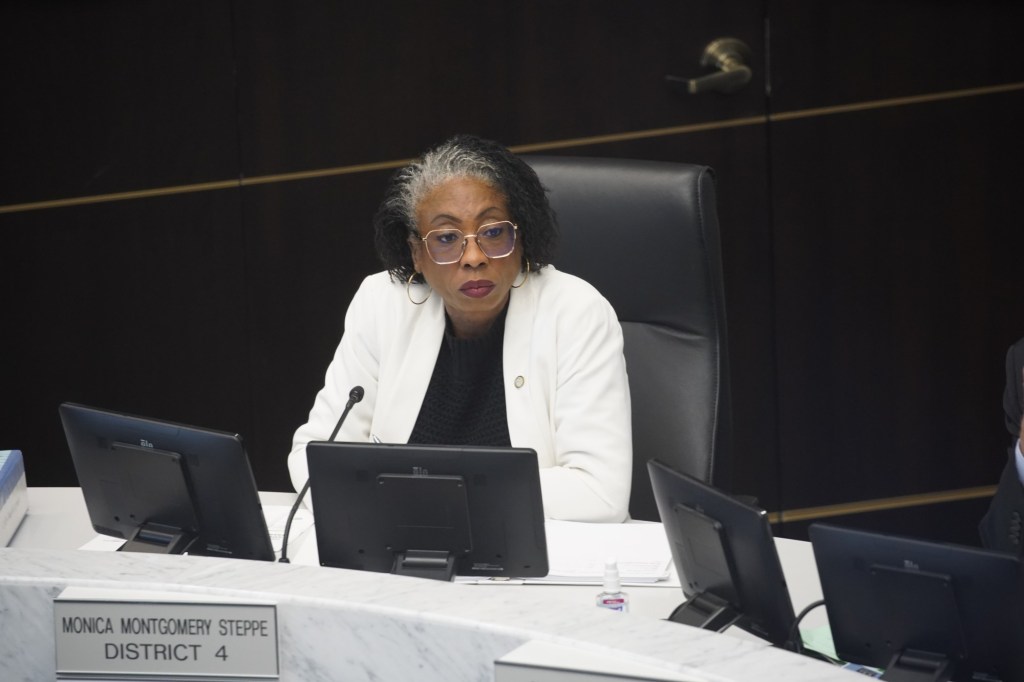
The San Diego County Board of Supervisors voted Tuesday to support a series of bills making their way through the California Legislature that would provide reparations to Black people who have been harmed by systemic racism and other inequities.
The action was praised by activists and other residents who called the county supervisors’ endorsement a significant step forward in an ongoing effort to right historic injustices.
The 4-1 vote means San Diego County will be listed as a formal supporter of all 14 bills — each now at different stages but progressing through the statehouse — that make up the reparations package.
Supervisor Joel Anderson was the lone no vote.
Each bill — ranging from civil rights and educational initiatives to health care access and criminal justice reform — aims to address the lasting effects of slavery, segregation and systemic racism.
Several of these bills would directly impact San Diego County, said Supervisor Monica Montgomery Steppe, who proposed the motion and was a member of the state’s reparations task force that developed the recommendations.
“It is no secret that our county carries the stain of historical racism and discrimination against the Black community,” said Montgomery Steppe. “As a member of the reparations task force, it’s my obligation to support and uplift policies that address the multifaceted dimensions of this history.
“Reparations are about repair and ensuring we don’t go backwards, and I’m grateful to the California Legislative Black Caucus and my colleagues for supporting measures that initiate those actions,” she said.
More than a dozen San Diegans, ranging from elected officials to residents, spoke in favor of Tuesday’s resolution, calling it an important step in the right direction toward holding the county accountable for various injustices — including segregation, redlining and other discriminatory practices.
“As history catches up with the truth, the signing of this resolution today accepts the responsibility of correction that must be done through our cities, counties and state,” said local genealogist and historian Yvette Porter-Moore. “I pray that this act will have a ripple effect on our nation because the world is watching.”
Ellen Nash, chair of the San Diego Chapter of the Black American Political Association of California, not only grew up listening to stories from her now 93-year-old mother, but personally experienced these injustices.
“This package provides a comprehensive approach to addressing the root causes of inequity and building a more inclusive future for all,” Nash said. “There is hope for the next generation.”
Anderson, the 2nd District supervisor who represents much of the northern and eastern parts of the county, said he could not support the package as a whole because he does not agree with some items that imply he may somehow be responsible for slavery.
“If we wanted to go through our history, there isn’t anybody in the United States that somebody in their history wasn’t discriminated against,” Anderson said, pointing to atrocities committed in California against Native Americans. “I think that if we keep looking to the past, we’ll never get to the future, and I want to focus on how we can improve things moving forward.”
Chair Nora Vargas contended that’s exactly what the reparations package aims to do.
“Reparations are about justice — about righting the wrongs of the past and building a more equitable future,” she said. “This bill has been supported across party lines, reflecting our shared values as Californians in striving for justice and equity.
“Supporting these bills is about more than just acknowledging the past — it’s about creating stronger, healthier communities where every Californian has the opportunity to thrive.”

